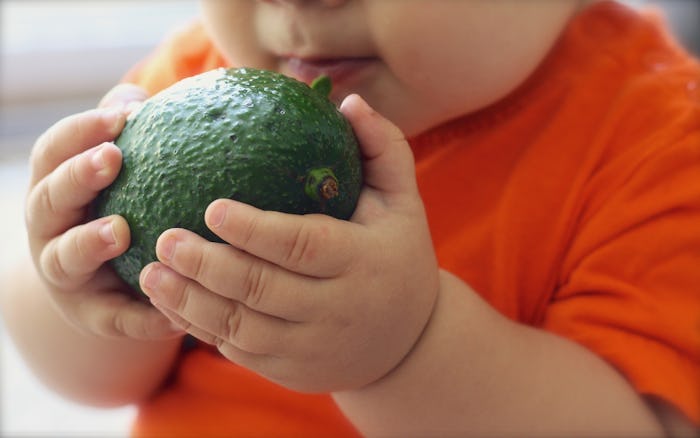Parents hoping to raise their babies to become healthier, more adventurous eaters should start with exploring the family fridge, new research suggests. It might come as no surprise to hear that homemade baby food offers some immediate benefits over the commercial kind, including giving parents the benefit of choosing exactly what goes into their baby’s belly. But a study published recently in the International Journal of Obesity suggests homemade baby food could improve health in later years — and that it might even help kids become little foodies as they get older.
Starting solids is a major milestone that often comes with all kinds of questions — from exactly when to offer first foods to the signs baby is allergic to a new food. But for those looking for a few more reasons to try making baby food rather than buying the pre-packaged kind, this new research offers links to child health that sound pretty compelling.
According to a Reuters news report, researchers at McGill University Health Center and the Montreal Children’s Hospital gathered data from parents of 65 infants when their babies were six months, nine months, 12 months, and three years of age. The study examined whether the type of food the babies ate — homemade, store-bought, or both — was associated with any difference in weight, growth, and diet diversity by their preschool years.
According to that report, the more homemade foods that babies ate, the lower their body mass index after their first birthday. Moreover, their parents were more likely to report a diet that included a variety of food groups, Reuters reported.
Study author Dr. Elise Mok told Reuters that exposing babies to the varied textures and tastes in table food could make them more interested in trying different foods as they got older. Those food choices, she added, could be important for avoiding childhood obesity and chronic health conditions in adulthood:
Given that food preferences begin early in life, are likely to persist and are difficult to change in adulthood, providing appropriate food choices during the complementary feeding period is of importance to facilitate food acceptance and ensure healthy growth and development.
The World Health Organization recommends that parents feed babies a variety of fruits, vegetables and certain proteins from the “family table” at no earlier than 6 months of age, according to its website. The WHO also calls for exclusive breastfeeding for the first six months and a combination of table food and breastmilk through age two. But there’s a significant disparity in which families are likely to actually follow those guidelines; by 6 months, only 44 percent of women are likely to breastfeed — and those moms are more likely to be affluent, educated, and white, according to the Centers for Disease Control.
Those statistics meant the study population was likely to be skewed as well, according to the Reuters report, which is why the authors cautioned against drawing sweeping conclusions without further research.
Still, the health and diet benefits of homemade food might come as good news to parents. So, the next time you notice your 6-month-old’s tiny fingers reaching for your mashed potatoes, it might not be a bad idea to let them try some too.
